Why we should all vote in municipal elections
It’s that time of year again: voting season! You might have noticed campaign signs cropping up in your neighbourhood or along major thoroughfares. Every region will be different but generally, we’re in what’s called a “midterm election” cycle. Here in Kelowna, I keep seeing the term “municipal elections.” It doesn’t really matter what you call it: voter turnout is historically low for this kind of election. Therefore, if we have the ability, we should all exercise our right to get out there and V-O-T-E.
Midterm vs. General
So what’s the difference, here? I actually had to look it up! >.<
Midterm (or municipal) elections are the public’s opportunity to vote for local representatives during the “middle” of an executive’s term. The executive in question might be a president or prime minister.
General elections are where we vote for that executive. It’s usually very exciting to vote in general elections, for whatever reason. But there’s a bit of a problem with this. We spend too much time focusing on the big-ticket elections! Conversely, we don’t spend enough time focusing on the elections right in our own backyard: mayor, council, town clerk, school board trustee…
Why don’t we vote in midterm elections?
There are a ton of reasons why we don’t vote in midterm elections, and I won’t get into all of them here. NPR has an excellent roundup of the many real and perceived barriers to voting that you can read up on.
Something I’ve been mulling over recently is that perhaps one reason we don’t tend to get so excited about municipal/midterm elections is that they don’t feel exciting, maybe? Electing a president or prime minister feels so…significant! It’s grand! It feels good knowing that we played a role in electing the leader of a country.
Voting big vs voting local
For many of us, we want to see dramatic, global change happen and it only feels possible if we elect a really good leader. I can certainly relate to this: my first time voting was in the general election when Barack Obama ran for US president in 2008. It felt super, exciting, to participate in that election.
I did not have the same feeling when I voted in my first municipal election. In fact, I can’t even remember what (or when) that would have been!
As time passes though, I’m realizing we might have this all backwards. Electing a world leader who aligns with our values is nice and we should still do that…but the President or PM isn’t responsible for the day-to-day operations of a community. If we want to change how things are going in our own towns, cities, or municipalities, we really do have to start in our own backyards.
There are so many things that need fixing right now: our food systems, healthcare, homelessness, poverty, education, jobs, income, and development, not to mention the flipping climate. And all of these issues have their own particular nuance from community to community. We can rely on our world leaders to help us with some of this, at a high level, but we also need boots on the ground where we live.
That phrase, “think global, act local” comes to mind. Why aren’t we doing that when it comes to elections?
What about municipal elections?
So what are municipal elections and do they matter?
When I talk about municipal elections, I’m referring to the elections where we vote for positions like the mayor, city councillor, and all other region-specific positions (trustee, clerk, etc).
So often, municipal elections have terrible voter turnout, particularly among young people. But this is the place where local change is most possible!
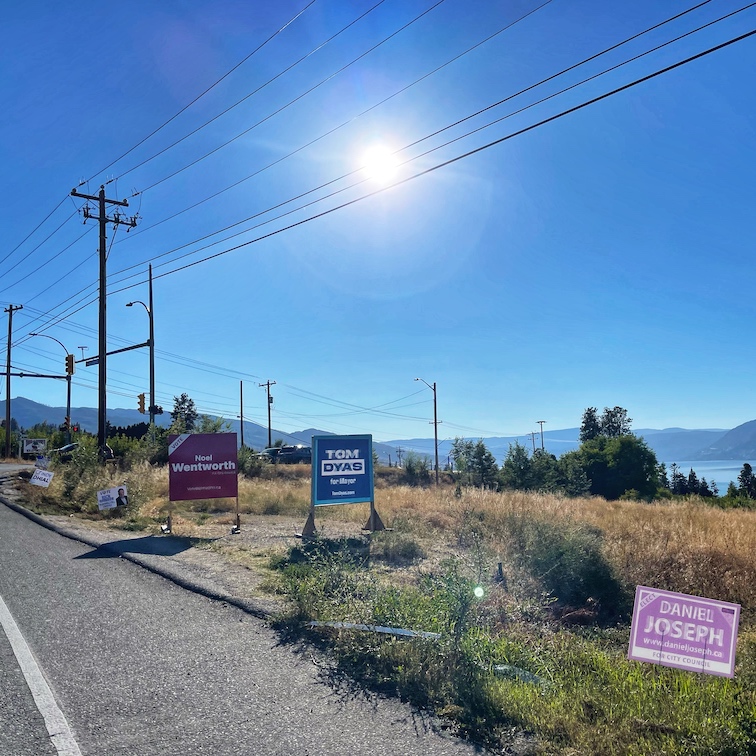
The stats
I live in Canada now, so I went out and found some stats for my area. The last time Canada held a federal/general election (in 2021, where they re-elected JT for a third term), voter turnout was 62.6%. In 2018, Kelowna’s municipal election turned out a whopping 32.79% of its voters. Ugh!
Yet even as I bemoan those stats, I also find myself thinking back to the times when I was one of the 67.21% of people who didn’t vote in a municipal election. I recall feeling kind of ho-hum about them. “What does it matter,” I thought, “if I vote for this mayor or that school-board trustee?” It felt so inconsequential. At the time, I was also more idealistic and hot-headed about big-ticket items like plastic pollution and climate change. I wanted our world leaders to make big changes: plastic bag bans! More support for small-scale agriculture! A wholesale move away from fossil-fuel cars! Rah!
(It turns out, things like school-board trustee elections matter, too. Check this out, from The Tyee.)
Taking it to the streets
It didn’t occur to me at that time that talking with the mayor and council of my town about better bike lanes and more support for the small-scale producers in my community would have been a good place to start. World leaders make their decisions based on their constituents…and if all the municipalities are crying out for decarbonizing the transportation system, well then you’d better believe we’d start transitioning to fossil-fuel-free transportation. That’s the theory, anyway.
(I might still be idealistic. There are many that say corporate interests and lobbying by big corporations or banks or wealthy people in power are holding undue influence over the system and they’re probably right, to a degree. But I’m not going to get into that here!)
Municipalities have more power than we give them credit for
A recent report by the BC Union of Municipalities put forth this bold statement in regards to a municipal’s control over greenhouse gas emissions:
“Municipal governments have direct or indirect control over approximately 44 percent of GHG emissions in Canada.”
Federation of Canadian Municipalities
And, The Tyee said as much in its recent article, ‘Climate Fixes: How Local Governments Matter.’ In it, they outline three ways municipalities can reduce emissions (in spite of any provincial or federal policies that might counteract them!). Municipalities can…
- …reduce a building’s carbon footprint
- ….protect green space and use it as infrastructure
- …employ smart densification (by reducing personal vehicle use and promoting walkable communities)
Hence why voting in municipal elections can actually be quite a power play.
What powers do a mayor and its councillors have to effect change locally?
A LOT!
According to the BC Government’s website, “The mayor is the head and chief executive officer of the municipality. The Mayor must…provide leadership to council including by recommending bylaws, resolutions and other measures that may assist in the peace, order and good governance of the municipality.”
Likewise, a municipal councillor must, “Consider the well-being and interests of the municipality and its community.”
And while it’s true that “certain decisions made by council are not effective until they are approved or authorized by the provincial government, such as long-term borrowing bylaws or municipal boundary changes,” it’s also true that municipal government is responsible for, “the delivery of local services to their community and the actions taken by the municipality.” These decisions are undertaken mostly independently, meaning that in many instances, they have autonomy (“limited oversight by other levels of government.”)
Is it possible then, that the issues we want to tackle in this world can be tackled locally? And that one way to do that might just be to vote in…municipal elections? 😉
So why don’t we “think global, act local?”
Yes, we all want big change: we want fossil fuel corporations to be held accountable for their emissions. We want a global ban on single-use plastics. We want the worldwide acceptance of alternative and sustainable fuel sources and more regenerative food production.
But we also have more localized needs that vary from place to place. For example, where I live (in the Okanagan Valley of BC), we get a lot of sunshine annually. It’s also a pretty dry place, which seems weird because there’s also a giant lake resting at the bottom of the valley! And yet, houses pre-wired for solar power are not common practice, and we continually seem to be building houses with black roofs and irrigated bright green lawns.
Another example: despite having an abundance of small-scale and medium-scale food producers in this region, we continually rely on outside food sources, like California, to fill our grocery store shelves (I wrote about this on Instagram a while ago, it drives me batty!).
Local issues beget local solutions
These are local issues. They might be solved through provincial or federal legislation. Or, they might be more easily and effectively tackled through local, regional action.
Now look: I’m not naive to the fact that many of the issues we face are complicated and require multi-pronged solutions and involvement from many stakeholders at many levels. It’s going to take all hands on deck to right the wrongs we’ve done to Planet Earth and its residents.
BUT and YET. Surely we can effect more change at the local level first. It seems so straightforward when I think about it like this.
“Start where you are, use what you have, do what you can” – Arthur Ashe, American professional tennis player
In a few weeks, residents of the Okanagan will take to the polls to vote for their respective mayors, councillors, trustees, and clerks. They have the opportunity to put people in power that can move the needle on these issues.
Rays of hope
In Kelowna, a small grassroots effort has launched, aiming to help the general public vote responsibly for candidates who actually intend to make our city livable, sustainable, and equitable. How are they doing that? By asking the candidates exactly what their positions are on all the issues facing our region. LiveAble Kelowna’s mission is to endorse candidates through a multi-tiered process that includes this questionnaire and a rigorous vetting process. Their questionnaire received a good response! (Click here for the results) The next step is to review the submissions, interview short-listed candidates, conduct a final vetting, and then choose candidates worth endorsing, who will actually live up to their commitments. This is all so that the voting public of Kelowna can have an easier time figuring out who deserves votes and who’s doing a lot of lip service.
They’re encouraging folks to do one, simple thing: VOTE TOGETHER, VOTE FOR BETTER. (Strength in numbers, right??)
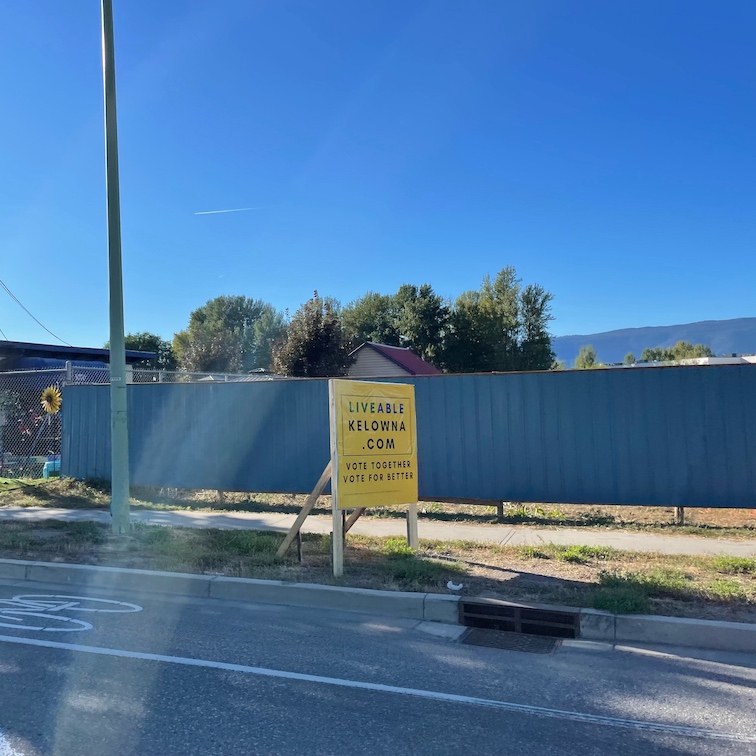
Do the thing!
I think as humans, we love to complain. We really do. But when it comes to the future of our communities and this planet, we can’t afford to keep complaining and not doing anything about it. We need to hone in on what we’re capable of changing. That means, starting local!
So, vote!
What do you think about municipal/midterm elections? Do you think they have the power to make positive changes in your community? I’d love to hear your perspective!

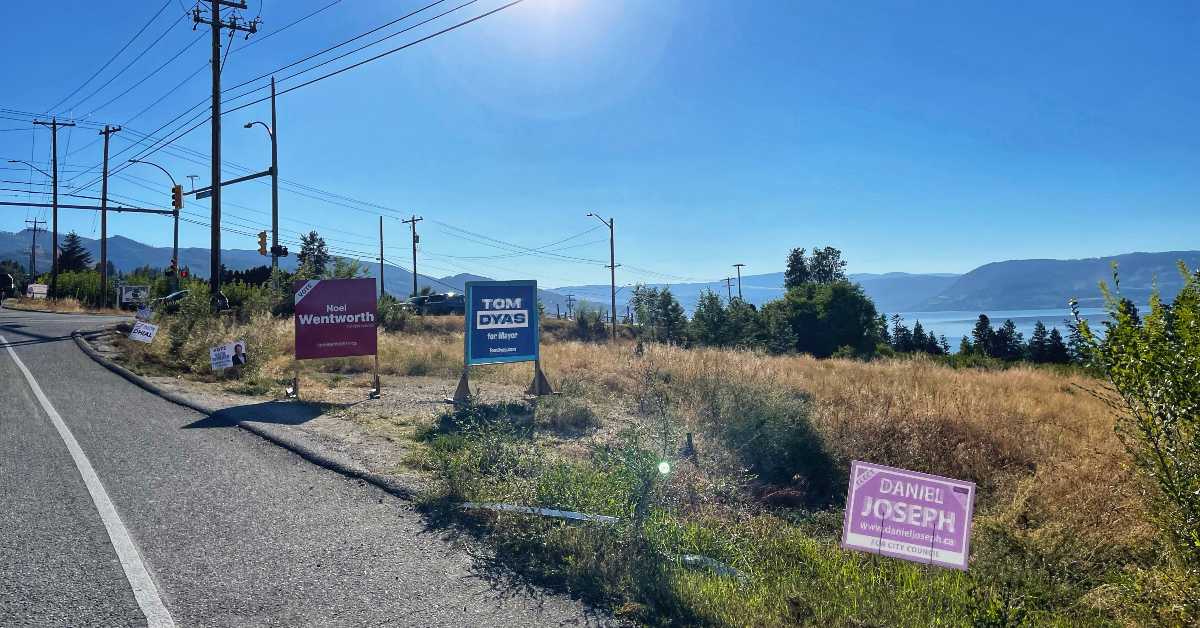
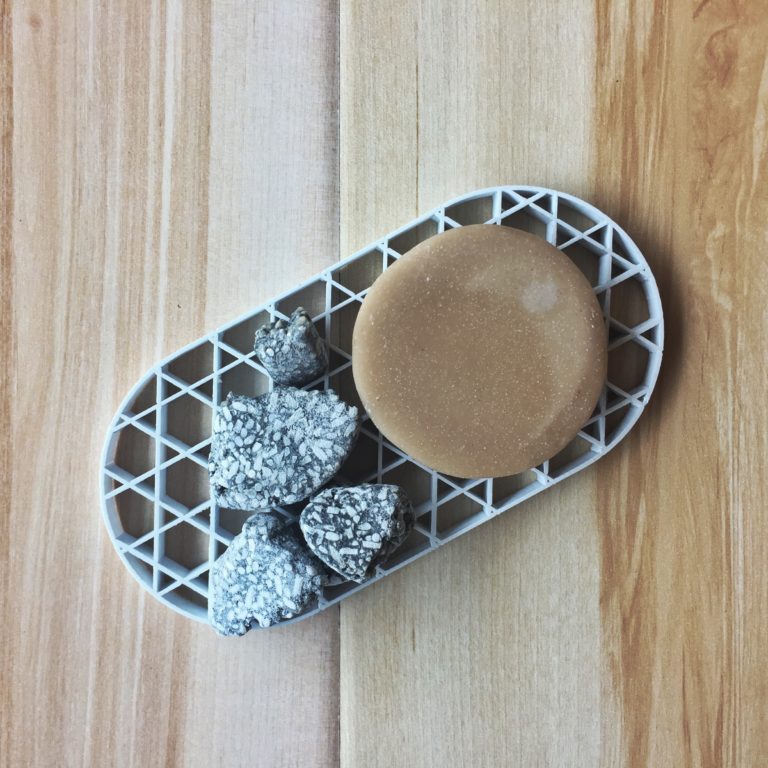
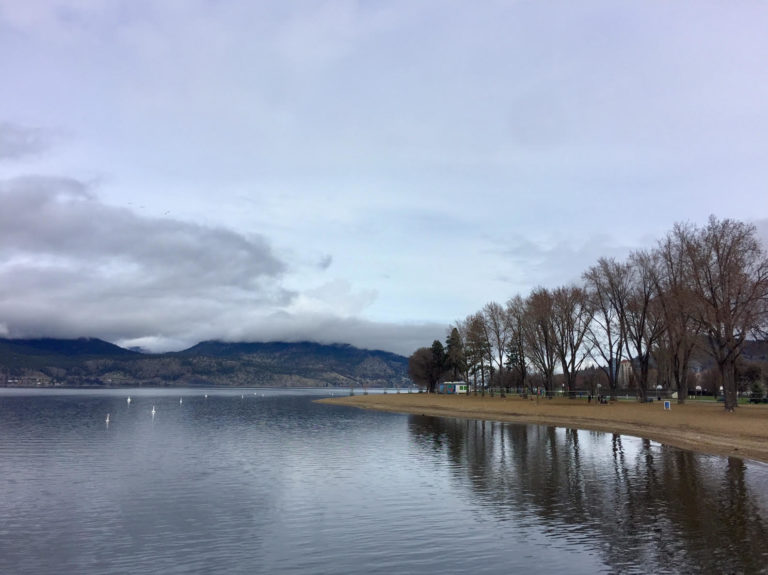
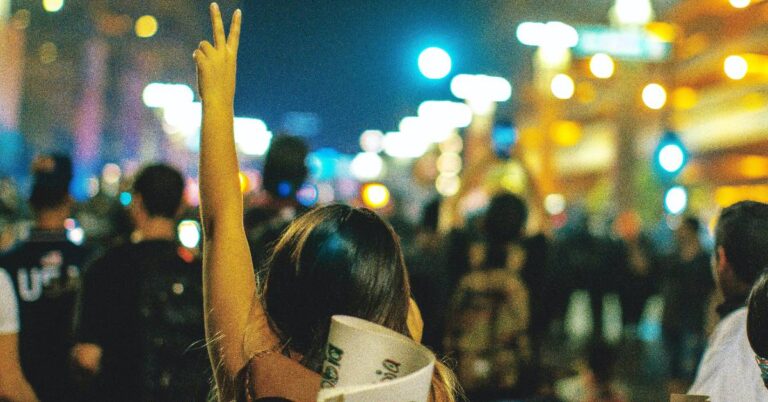
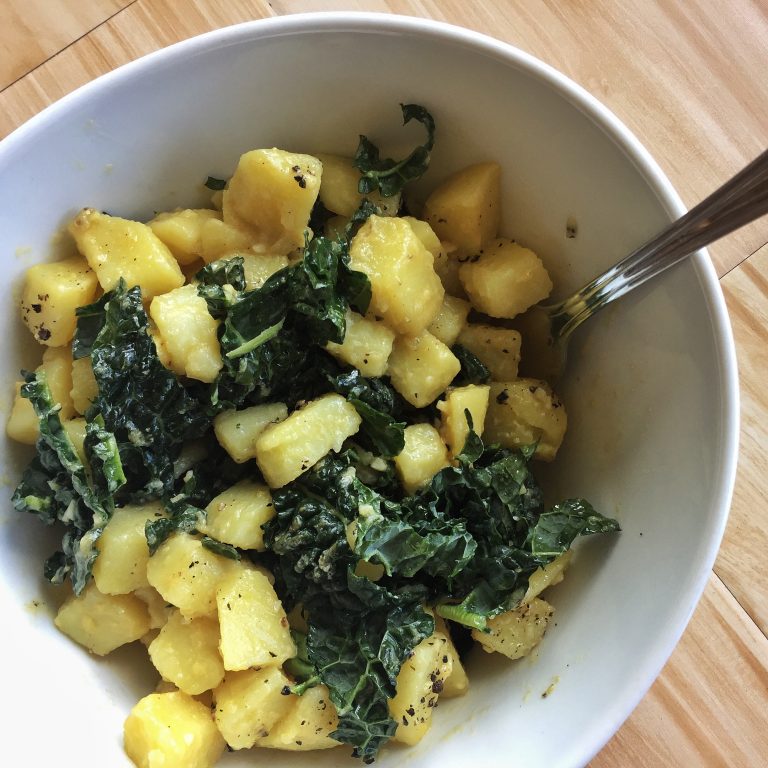
Aww man but I don’t feel like voting! You make such good points though and I totally believe in all you say. We need to start local if we want to change things! The reason I hate voting in this type of election (even though I usually do anyway) is that I feel like I am never informed enough to sort through the million people we are voting for. It’s a lot of info. I usually research the mayor but rarely get far after that. It’s an excuse and maybe not a great one. But there it is 🙂
Yes, I feel the same way, Nicole! Election candidate overwhelm is so real and it’s hard to weed through it all especially when there are so many candidates. The LiveAble Kelowna group is trying to cut through the noise to identify candidates focused on sustainability and other good values that we would align with and they’ve found their select candidates, so you could start there!